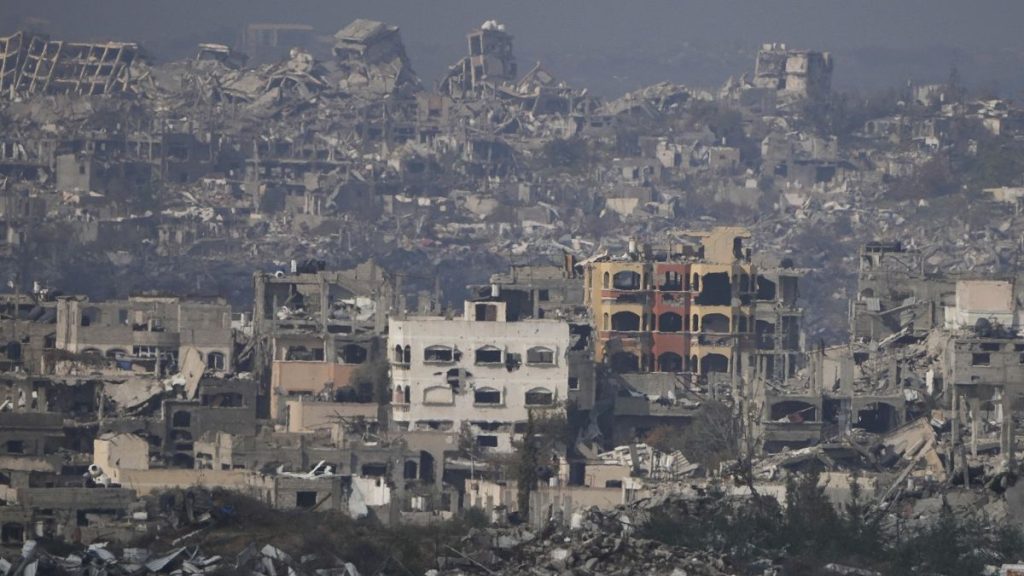The fragile ceasefire agreement reached between Israel and Hamas, brokered primarily by the United States and Qatar, has ignited a flicker of hope in the war-torn Gaza Strip. While the European Union played a limited role in the negotiation process, it has expressed strong support for the truce and pledged substantial financial aid to address the dire humanitarian crisis in the region. The EU’s contribution of €120 million, supplementing previous aid packages, aims to provide essential resources for food, healthcare, and sanitation, reflecting its commitment to alleviating the suffering of the Palestinian population. However, the sustainability of the ceasefire remains uncertain, with lingering doubts and accusations exchanged between Israel and Hamas, raising concerns about the long-term prospects for peace.
The EU’s focus, despite its peripheral involvement in the ceasefire negotiations, centers on its potential contribution to the post-ceasefire reconstruction and stabilization efforts. Brussels envisions a more active role in shaping the future of Gaza, particularly in addressing critical governance and security issues. This includes facilitating discussions on the future administration of Gaza, establishing mechanisms for maintaining security, and revitalizing the stalled diplomatic process towards a two-state solution. The EU believes its experience in conflict resolution and humanitarian assistance positions it well to contribute meaningfully to these complex challenges. However, the deep-seated mistrust and entrenched political divisions between the parties involved present significant obstacles to progress.
The truce agreement, while offering a respite from the intense violence, has been met with skepticism and challenges. Israeli Prime Minister Benjamin Netanyahu has attributed delays in fully endorsing the deal to last-minute demands from Hamas, while members of his cabinet have also expressed reservations. The volatile political landscape within Israel adds another layer of complexity to the already fragile situation. Furthermore, the precarious security situation in Gaza and the unresolved issues surrounding governance and long-term political solutions cast a shadow over the prospects for sustained peace.
The EU, recognizing the gravity of the humanitarian crisis in Gaza, has stepped up its commitment to providing assistance. The €120 million aid package represents a significant investment in addressing the immediate needs of the population, ravaged by months of conflict and blockade. This aid will be channeled towards providing essential supplies, supporting healthcare services, and improving sanitation infrastructure. Beyond the immediate humanitarian response, the EU aims to leverage its diplomatic and logistical capabilities to contribute to the reconstruction and development of Gaza, facilitating the creation of a more stable and sustainable environment for its residents.
One potential avenue for EU involvement lies in the redeployment of a mission to the Rafah crossing, a crucial border checkpoint between Gaza and Egypt. This mission, if approved by both Israeli and Palestinian authorities, could provide valuable technical assistance and advisory support to Palestinian border authorities, enhancing their capacity to manage the flow of goods and people. Improving the efficiency and security of the Rafah crossing is essential for facilitating trade, access to humanitarian aid, and the movement of people, contributing to the overall economic and social recovery of Gaza.
However, experts acknowledge that the EU’s influence in the Israeli-Palestinian conflict has been limited, particularly in the context of the recent ceasefire negotiations. The primary actors in these discussions were the United States, Egypt, and Qatar, with the EU largely relegated to a supporting role. Despite this, the EU maintains a strong interest in promoting a peaceful resolution to the conflict and views its post-ceasefire involvement as crucial. By focusing on issues of governance, security, and diplomatic engagement, the EU hopes to contribute to a more stable and prosperous future for both Israelis and Palestinians. The path ahead, however, remains fraught with challenges, requiring sustained diplomatic efforts and the cooperation of all stakeholders to achieve a lasting peace.














